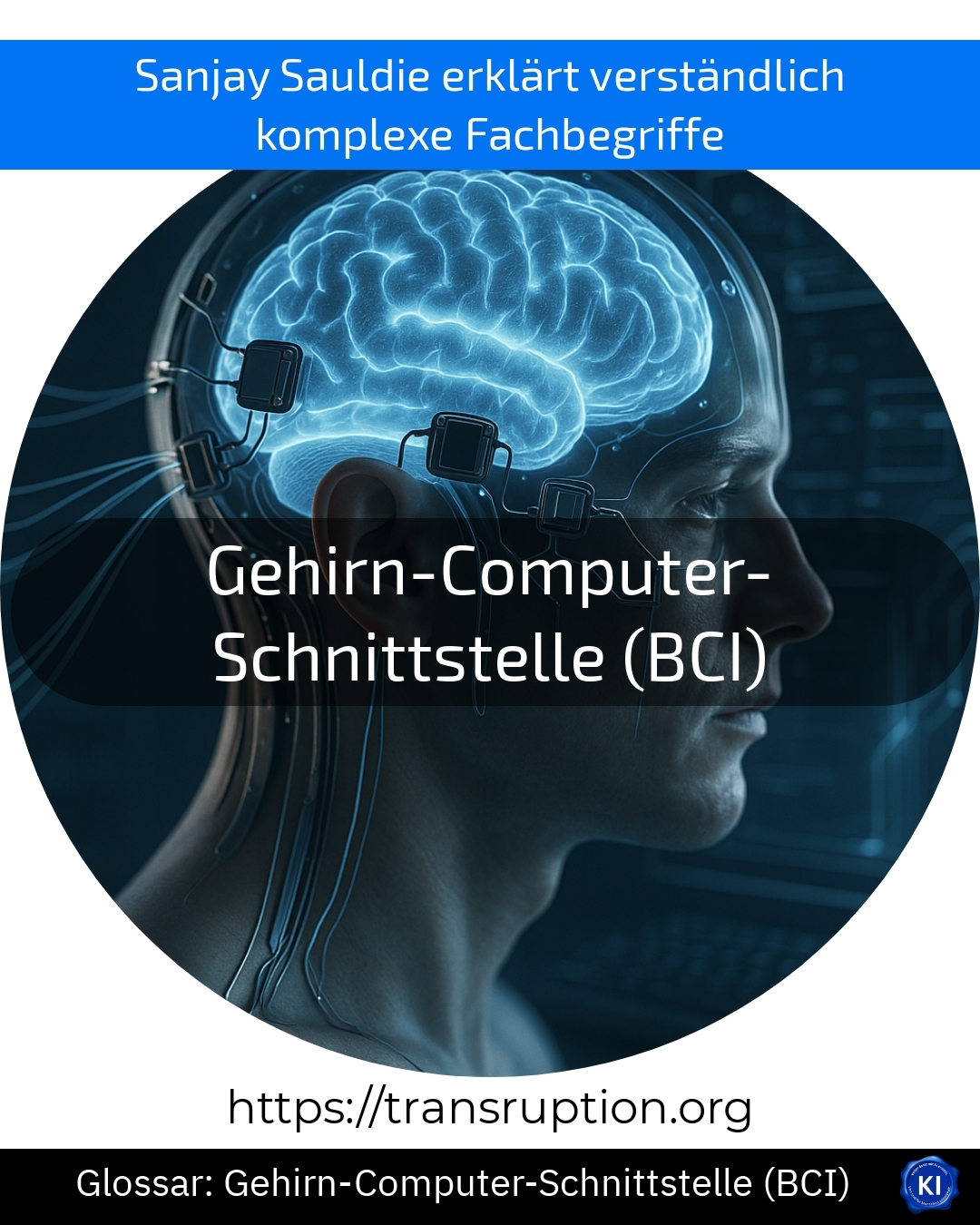The brain-computer interface (BCI) belongs to the fields of artificial intelligence, digital society and robots. With a BCI, thoughts can communicate directly with computers or machines - without the need for a keyboard, mouse or voice commands. The technology translates brain signals into digital commands so that devices can be controlled by thought alone.
A simple example: people who can no longer move their arms or legs are given the opportunity to steer a wheelchair with their thoughts thanks to a brain-computer interface. With the help of special sensors on the head, brain waves are measured and transmitted to a computer, which turns them into a control command for the wheelchair.
The areas of application for BCIs are constantly growing - from medicine and robotics to games and everyday applications. This innovation offers huge opportunities, especially for people with physical disabilities, and can greatly simplify tasks. Although the technology is still being developed, it already demonstrates the huge potential of connecting our brains with modern technology.















